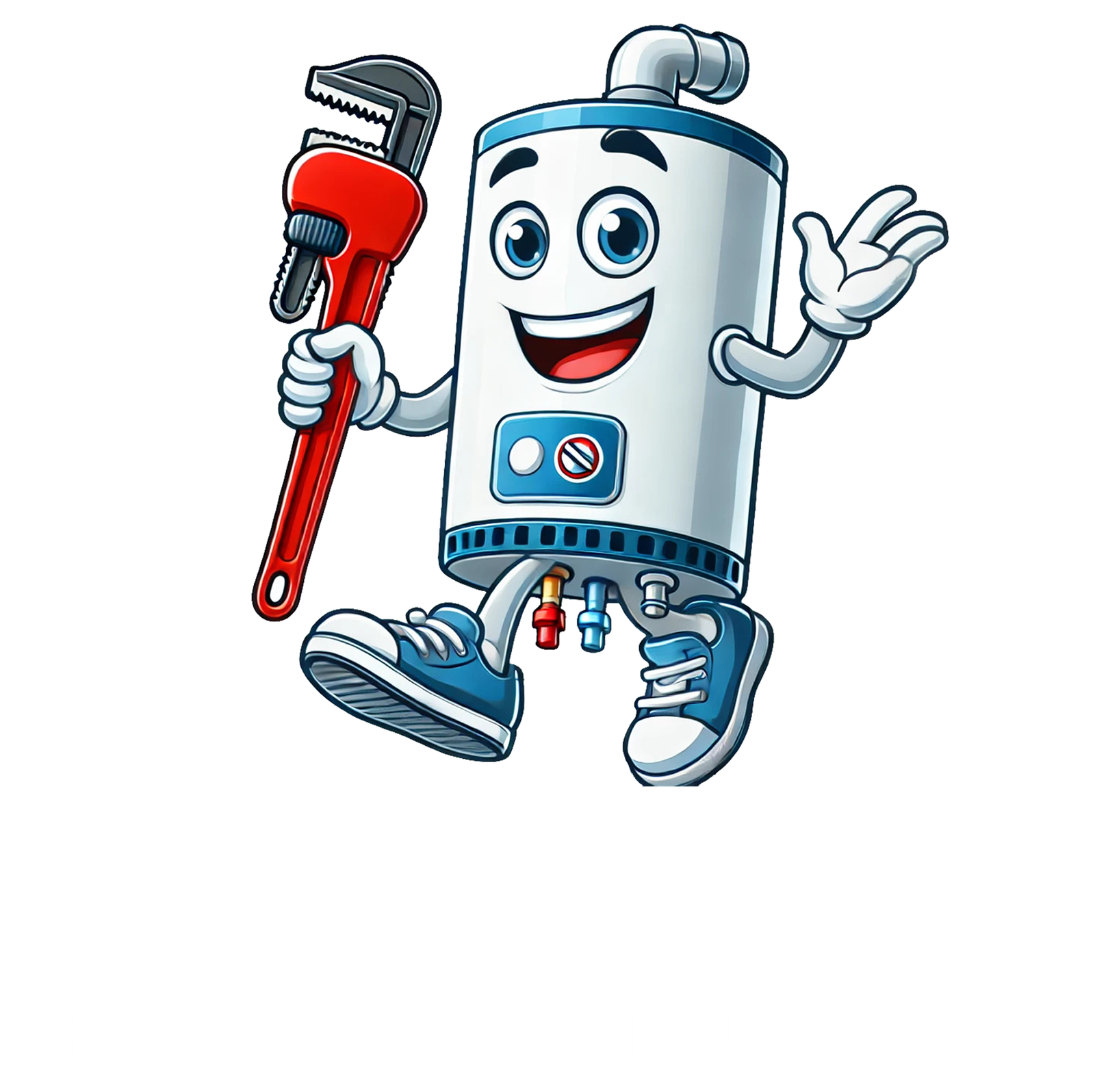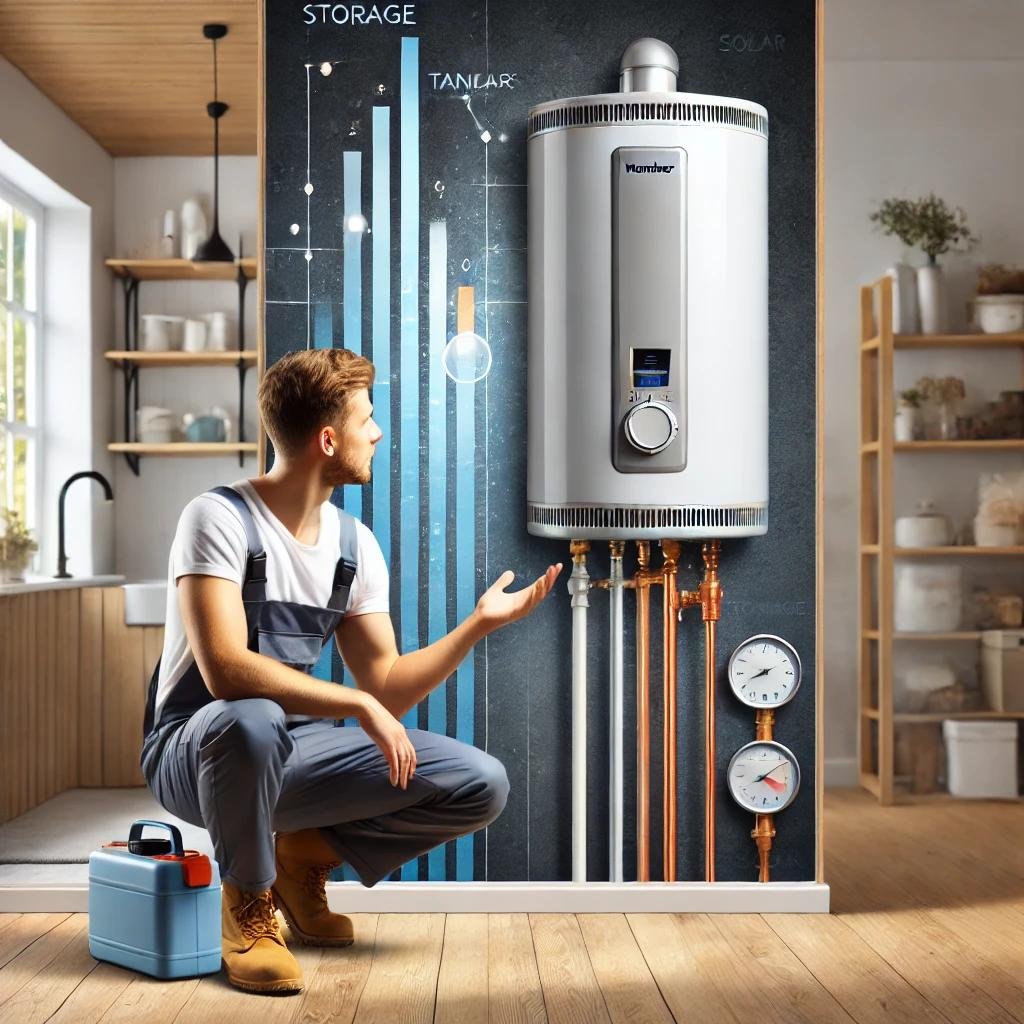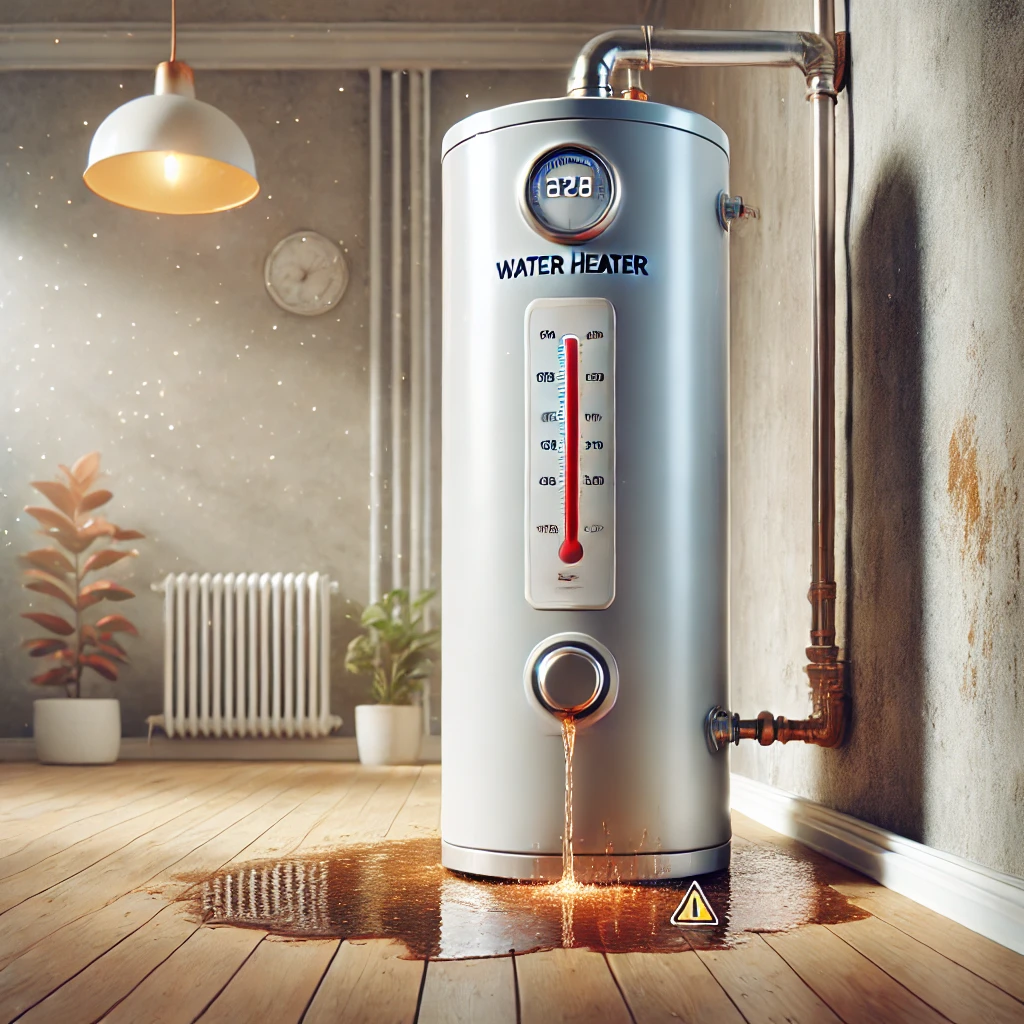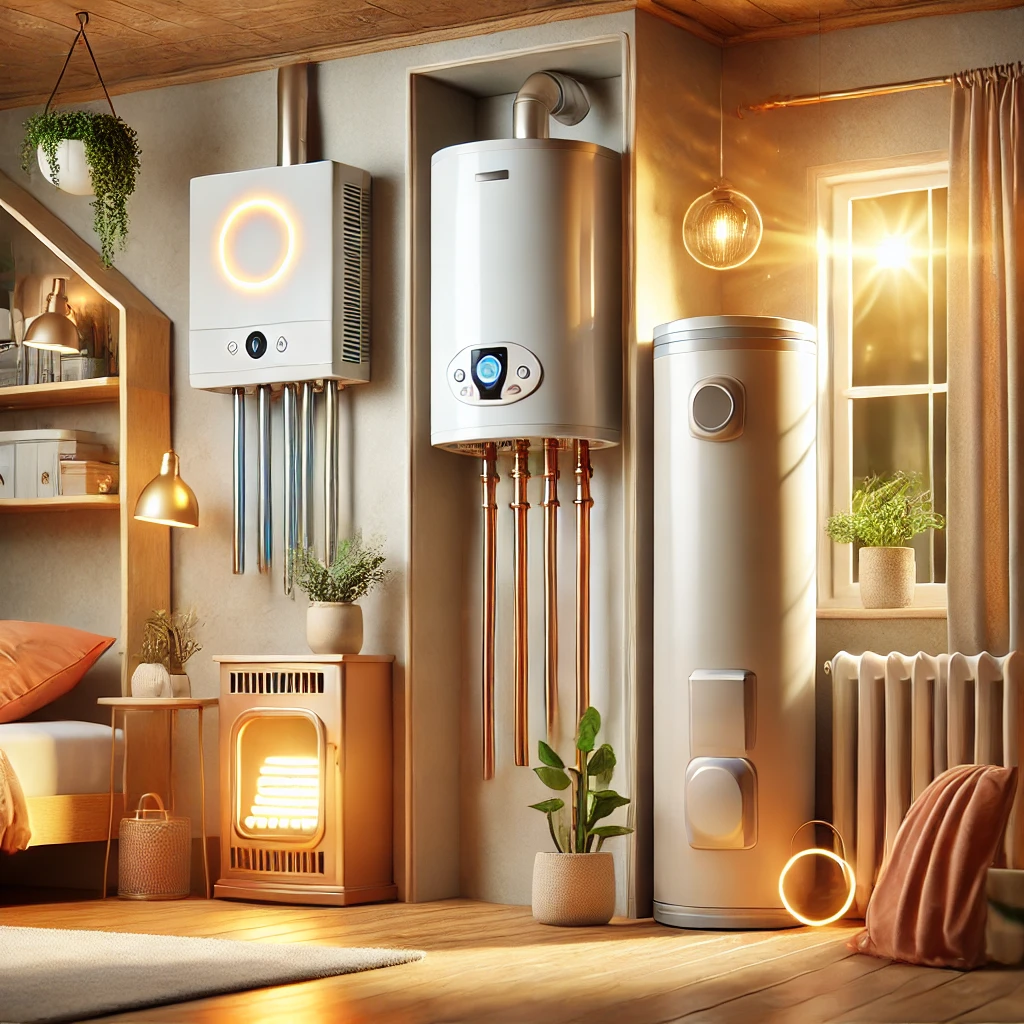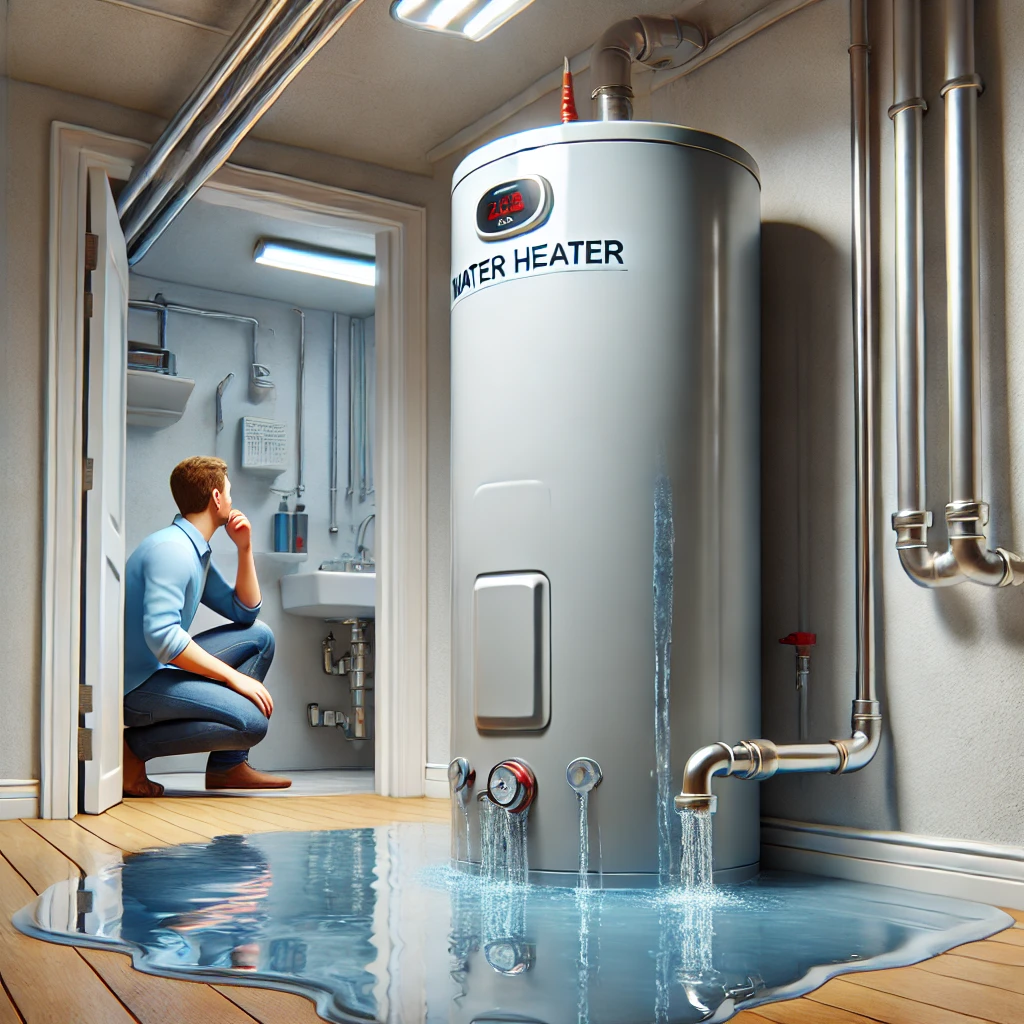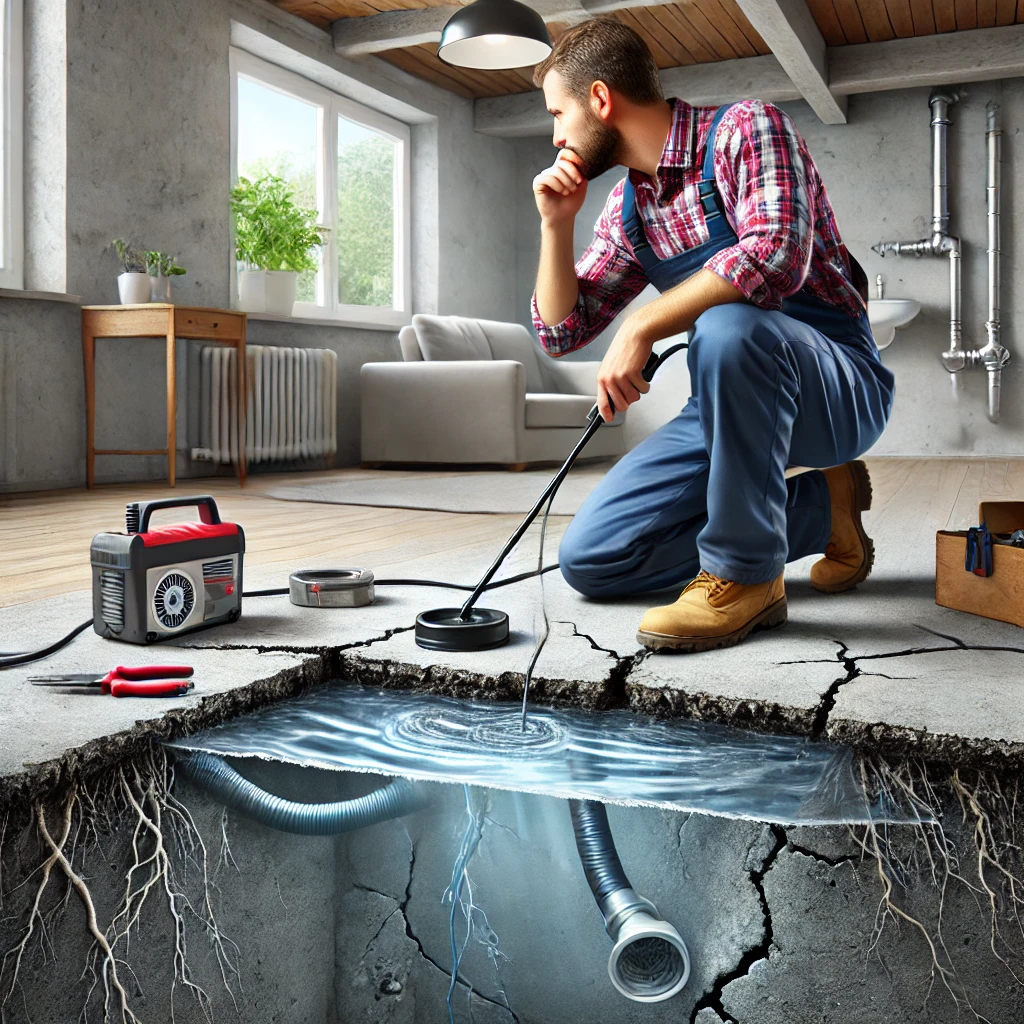When it comes to maintaining a comfortable home, a reliable water heater is essential. Whether you’re replacing an old unit or installing a brand-new system, choosing the right water heater requires careful consideration of efficiency, cost, and long-term benefits. Understanding different types of water heaters and what influences their pricing can help homeowners make an informed decision.
Types of Water Heaters
Traditional Storage Water Heaters
Storage water heaters are the most common type found in homes. They store hot water in a tank and continuously heat it to maintain the desired temperature. These units are available in various sizes, typically ranging from 30 to 80 gallons, making them ideal for households of all sizes.
While storage heaters are cost-effective upfront, they may lead to higher energy bills due to standby heat loss, where energy is wasted keeping water hot even when not in use.
Tankless Water Heaters
Tankless water heaters, also known as on-demand water heaters, provide hot water only when needed. These units heat water as it flows through the system, eliminating the need for a storage tank.
The biggest advantage of tankless systems is energy efficiency. They can reduce energy consumption by up to 34% compared to traditional tanks, according to the U.S. Department of Energy. However, the initial installation cost tends to be higher due to necessary plumbing upgrades.
Heat Pump Water Heaters
Heat pump water heaters work by transferring heat from the surrounding air into the water tank. They use significantly less electricity than conventional storage heaters, making them an eco-friendly choice.
Though they offer impressive energy savings, heat pump units require ample space for air circulation and work best in warmer climates.
Solar Water Heaters
For homeowners looking to maximize energy savings, solar water heaters are an excellent choice. These systems use solar panels to absorb heat from the sun and transfer it to the water storage tank.
While solar heaters have a higher upfront cost, they can drastically reduce energy bills and qualify for tax credits or rebates, making them a worthwhile investment over time.
Factors That Affect Water Heater Cost
The price of a water heater depends on several factors, including type, size, installation complexity, and energy efficiency. Homeowners should consider these elements when budgeting for a new system.
Unit Type and Size
Storage water heaters are generally the most affordable, while tankless and solar options tend to be more expensive. The size of the unit also impacts pricing, as larger tanks require more materials and energy output.
For example, a 40-gallon storage water heater typically costs between $500 to $1,500, while a tankless water heater ranges from $1,000 to $3,500, depending on the brand and features.
Installation and Labor
The complexity of the installation plays a significant role in water heater cost. Simple replacements for existing storage tanks are often cheaper, while switching to a tankless system may require additional plumbing modifications, increasing labor costs.
On average, installation costs range from $600 to $2,500, with labor expenses varying based on location and the difficulty of the setup.
Energy Efficiency and Operating Costs
Energy-efficient models, such as heat pump or solar water heaters, have a higher purchase price but lower long-term operating costs. Choosing an ENERGY STAR® certified model can result in significant savings over the years.
According to the U.S. Department of Energy, a high-efficiency heat pump water heater can save homeowners $300 to $600 annually on energy bills compared to conventional electric models.
Brand and Warranty
Reputable brands often come with better warranties and advanced technology, which can affect pricing. Investing in a unit with a longer warranty period ensures peace of mind and protects against unexpected repair costs.
How to Choose the Right Water Heater
Assess Your Household’s Hot Water Needs
Consider the number of people in your home and your daily water usage. A larger household with multiple bathrooms may require a high-capacity storage tank or a tankless system that can keep up with demand.
Evaluate Energy Efficiency
Look for models with high energy factor (EF) ratings or Uniform Energy Factor (UEF) ratings to maximize efficiency. Investing in an energy-efficient water heater can offset higher initial costs with long-term savings on utility bills.
Consider Maintenance and Longevity
Routine maintenance can extend the lifespan of a water heater. Flushing the tank annually, checking the anode rod, and inspecting for leaks can prevent costly repairs.
Tankless water heaters generally last longer than traditional storage tanks, often exceeding 20 years with proper maintenance, compared to the 10-15 years expected for conventional units.
Get Professional Advice
Choosing the right water heater can be overwhelming, especially with so many options available. Consulting a professional ensures that your home gets the most efficient and cost-effective system based on your specific needs.
For expert guidance on water heater installation, maintenance, and pricing, reach out to ASAP Heating & Plumbing. Their experienced team can help you select the best system for your home and budget.
Conclusion
Upgrading or replacing a water heater is a crucial decision that impacts energy efficiency, comfort, and long-term savings. Whether opting for a traditional storage heater, tankless system, or a solar-powered unit, understanding the factors affecting water heater cost ensures that homeowners make a smart investment.
To find the best water heater for your home, schedule a consultation with ASAP Heating & Plumbing today. Their team provides expert recommendations, professional installation, and top-tier service to ensure you get the perfect system for your needs.
